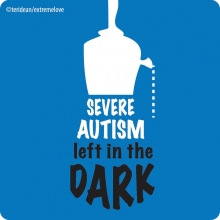I thought it was a myth!
I have heard about a lot of people breaking a lot of stalls by doing something different. What actually happens is the stall was about to break anyway, and instead of attributing the renewed loss to working their plan and patience, they attribute it to some miraculous new element. Protein is important, but not magical.
Keep up your hard work.
6'3" tall, male.
Highest weight was 475. RNY on 08/21/12. Current weight: 198.
M1 -24; M2 -21; M3 -19; M4 -21; M5 -13; M6 -21; M7 -10; M8 -16; M9 -10; M10 -8; M11 -6; M12 -5.
But, but, but... that one woman swore that each time she stalled, eating pizza broke her stall... so surely pizza is magical. LOL
The same thing happens with the hair loss. Someone tries something their hairdresser/cousin/mailman told them about that is supposed to prevent/stop hair loss and a week or two later the hair loss stops. The fact that they were already 9 months out and the hair loss was due to stop anyway doesn't matter. They swear that the product solved the problem... Or someone swears that something decreased their hair loss when they have no way in hell to know how much hair they were going to lose if they did absolutely nothing. It makes me crazy!
14 years out; 190 pounds lost, 165 pound loss maintained
You don't drown by falling in the water. You drown by staying there.
![]()
Well, by myth rights, my body should have eaten my heart and the rest of my muscles, and I should be bald by now - me not drinking any protein shakes and all ... No, I am not wearing a wig in my avatar pic, nor am I sitting because I cannot stand LOL!
Proud Feminist, Atheist, LGBT friend, and Democratic Socialist

Wishing _Well... You switched from mostly carbs diet (vegetables) to low carb proteins diet. Initially when we start high proteins -0 low carb diet - we lose water.. Don't be alarmed that you may gain some back if you start eating more carbs again.
Don't Be Fooled by Quick Losses and Devastating Gains
After a week of doing a low carb diet, new dieters are filled with excitement. They've lost anywhere from four to ten or even twelve pounds. They conclude, "This diet works!" and their enthusiasm after that quick weight loss may motivate them to stick with the diet even when the weight loss slows down to normal levels--3 to 8 pounds a month.
But there's a dark side to this instant weight loss. Slip up and eat a "normal" diet for a day and what happens? The lost pounds are back, all five or ten of them! The feeling of failure and distress can set the dieter on a spiral of binging and despair that quickly leads to their regaining of all the weight lost through weeks of dieting.
In fact, both the joy and the despair you feel in response to this rapid loss or gain is misplaced. The quick losses and gains are almost entirely water. Whether you are low carbing or not, you must burn off 3,500 more calories than you take in to lose a pound of fat and you must eat 3,500 calories more than you need to gain a pound. Despite the hype in the diet doctors' books, low carbing does not repeal the basic laws of thermodynamics. So what is that four to ten pounds of "easy go, easy come" weight all about?
What you REALLY Lost or Gained
When you cut the carbs out of your diet, your body empties out the "emergency" stores of carbohydrate it keeps in the liver and muscles in the form of a substance called glycogen. Glycogen is a normal part of our metabolism and allows us to do energy-intensive things like sprinting, for example, by letting us draw on the carbs stored in our muscles for energy.
More importantly the glycogen stored in our liver allows us to keep our brain functioning. A person who is not low carbing needs 100 gms of glucose a day merely to supply the brain's basic needs. If the body can't get glucose from the diet it has two choices: use stored carbohydrate--our friend glycogen again, or convert dietary or muscle protein into carbohydrate using a lengthy process called "gluconeogenesis" which takes place in the liver. Because the body wants to avoid using its own muscle fibers for fuel, it does what it can to keep that liver glycogen store filled up.
Medical textbooks usually tell us that a typical 150 lb man is carrying about three quarters of a pound of glycogen, but in my researches for my new book Diet 101:The Truth About Low Carb Diets I found some solid evidence that suggests that this estimate only applies to the young, lean, male college students who were research subjects in the 1950s and '60s. If you are overweight, especially if you got overweight eating a diet full of starch, sugar, and high fructose corn syrup, it is very likely that you are carrying a lot more glycogen than that estimate.
And the news gets worse, because it turns out that each gram of glycogen is bound to four grams of water.This means that when your liver and muscles are charged up with glycogen you gain four times the weight of that glycogen in water.
When you start a very low carb diet you cut off the body's supply of dietary carbohydrate and this leads to a rapid emptying of these liver and muscle glycogen stores. And when you lose that glycogen, you also lose the associated water. That's the reason why, during the first couple days of a low carb diet, you lose weight so dramatically. It's also why you may feel slimmer and lose "inches." You haven't lost fat. You've simply squeezed out the water and glycogen in your muscles and liver.
But what happens when you go off the diet for even so little as a single meal? If you eat a significant amount of carbs, your liver and muscles grab glucose from your bloodstream to replenish that emergency stock. As they do this, four grams of water join each gram of glycogen and, as fast as you can say, "Omigawd, I cheated!" the pounds you lost at the very beginning of the diet pile back on.
Hala. RNY 5/14/2008; Happy At Goal =HAG
"I can eat or do anything I want to - as long as I am willing to deal with the consequences"
![]()
"Failure is not falling down, It is not getting up once you fell... So pick yourself up, dust yourself off, and start all over again...."







